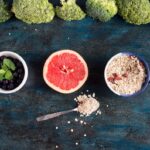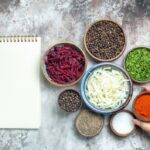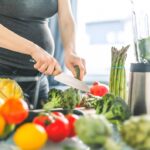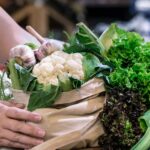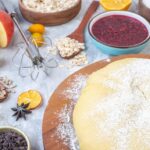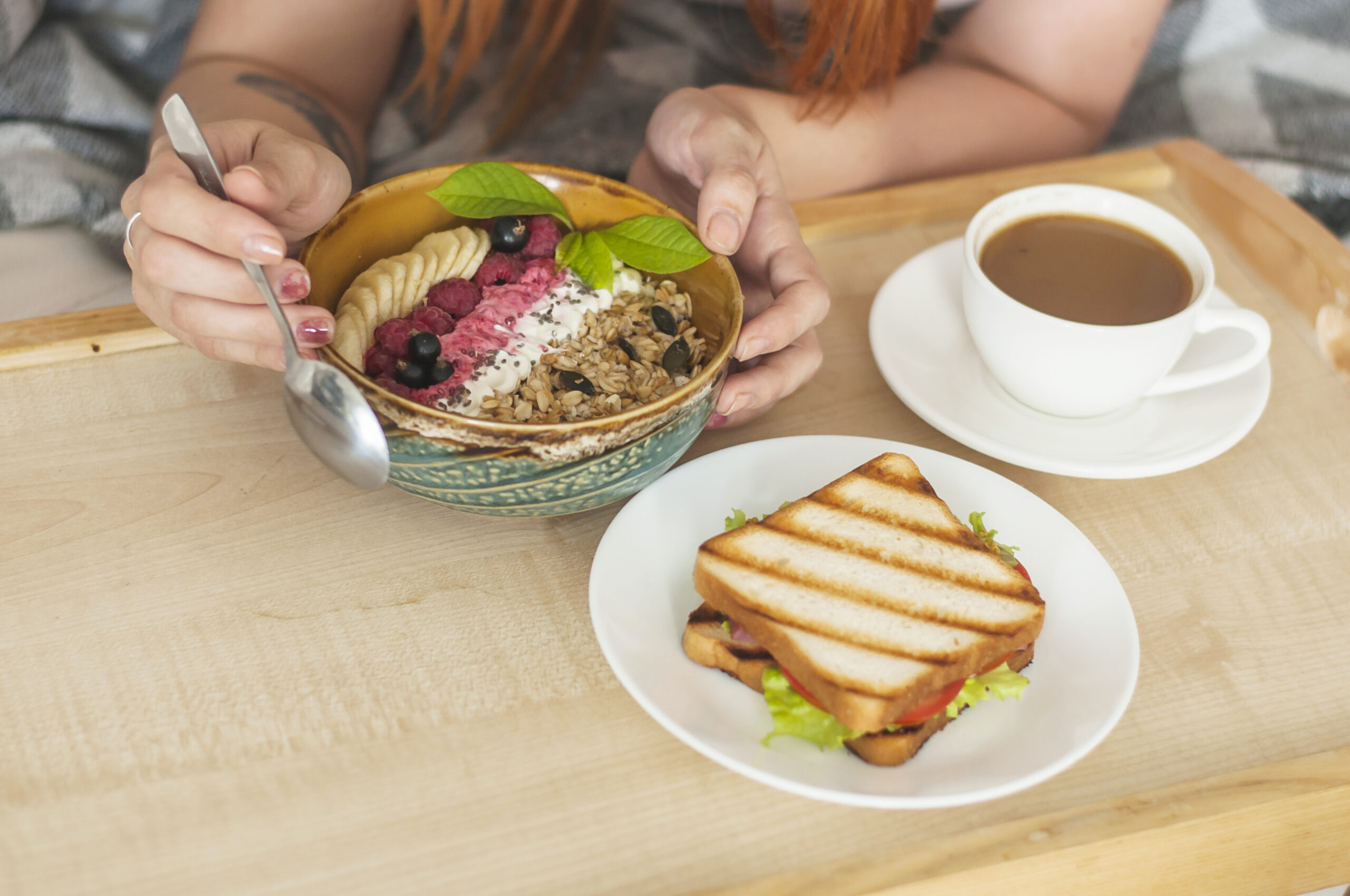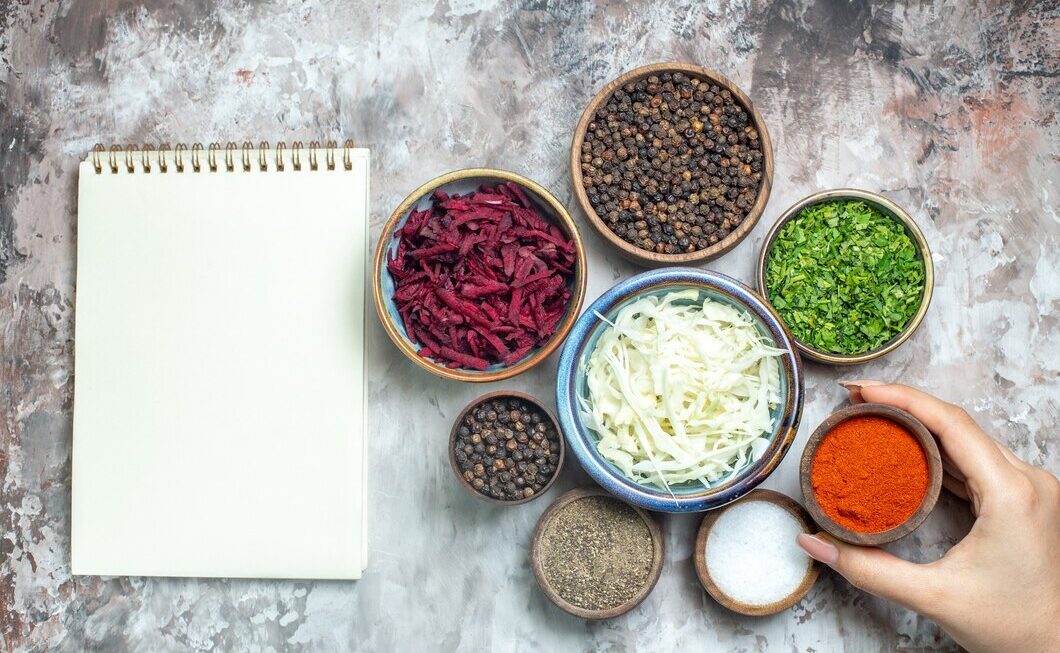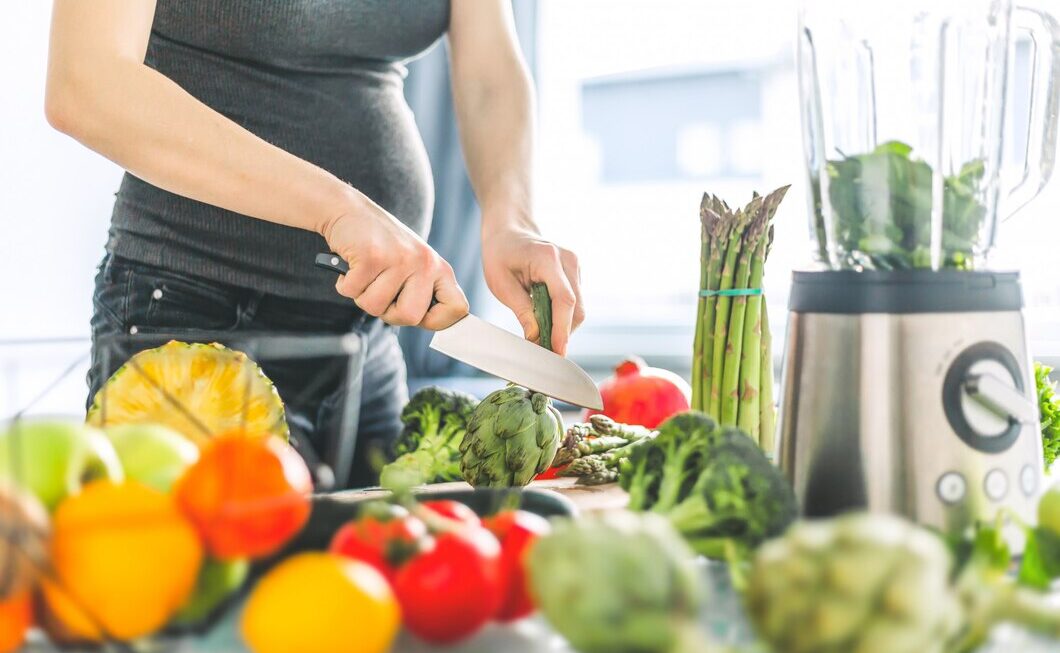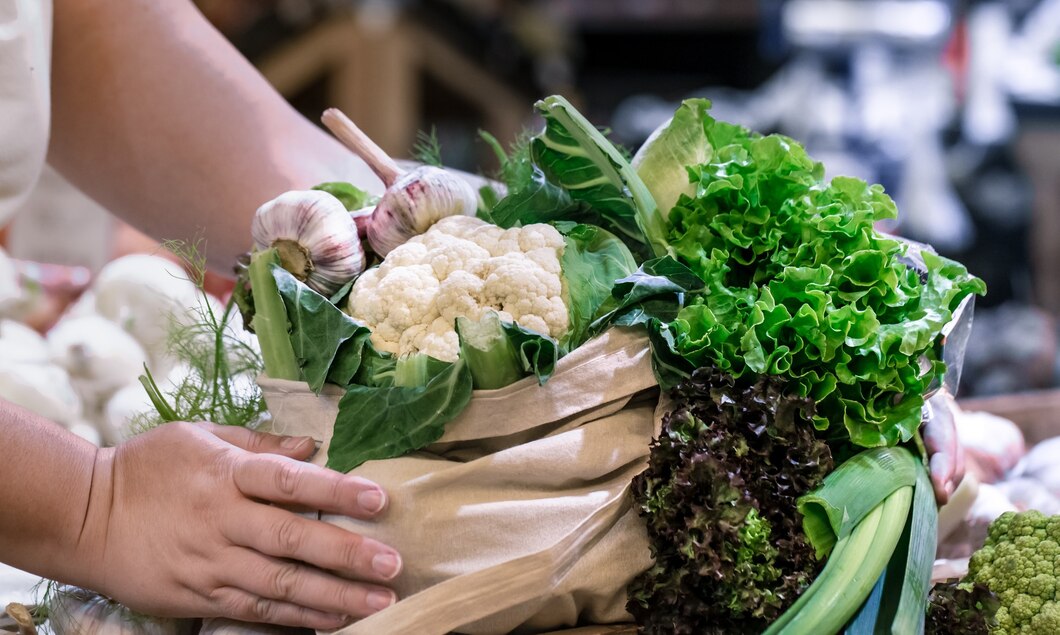There’s something deeply satisfying about starting the day with a warm, nutritious & nourishing breakfast. It feels comforting, grounding, and provides steady fuel for the hours ahead – a welcome ritual whether it’s a chilly winter morning or simply a personal preference.
While cold cereals and fruits have their place, especially in the current Jaipur heat, the world of warm and comforting vegan breakfasts offers incredible diversity and flavour, moving far beyond simple oatmeal.
This guide explores delicious plant-based vegan breakfast options, from traditional Indian staples to creative twists, examining them through the lenses of nutrition, ethics, environment, and practical home cooking, ensuring you can begin your day with warmth, energy, and compassion.
Best Warm & Comforting Vegan Breakfasts
LENS 1: Nutritional Analysis (Nourishing Warmth)

A warm vegan breakfast can be expertly designed to provide sustained energy, satiety, and a wealth of essential nutrients.
- Sustained Energy Source: Complex carbohydrates are key. Whole grains like rolled oats, dalia (broken wheat), traditional Indian millets (bajra/pearl millet, ragi/finger millet, jowar/sorghum – excellent choices for Rajasthan!), quinoa, or even savory bases like poha (flattened rice) provide slow-releasing energy, preventing mid-morning slumps often caused by sugary, refined options.
- Protein for Staying Power: Including protein at breakfast is crucial for satiety. Achieve this with:
- Nuts & Seeds: Stirred into porridge (almonds/badam, walnuts/akhrot, peanuts/moongphali), sprinkled on top (chia, flax/alsi, pumpkin/kaddu ke beej, sunflower/surajmukhi), or as nut butters.
- Tofu: Crumbled into a savory scramble (bhurji).
- Legumes: Cooked lentils or beans incorporated into savory porridges or breakfast bowls (like poha with peas/matar and peanuts). Sprouts (ankurit anaaj) added to savory dishes.
- Plant Milk: Using protein-rich soy milk as a base for porridge.
- Fiber for Fullness & Gut Health: Whole grains, millets, legumes, fruits, vegetables, nuts, and seeds all contribute dietary fiber, promoting digestive health and enhancing satiety.
- Warming Spices & Potential Benefits: Many warm breakfasts utilize spices with traditional significance:
- Sweet Dishes: Cinnamon (dalchini), cardamom (elaichi), cloves (laung), ginger (adrak) add warmth and flavour to porridges and chai.
- Savory Dishes: Turmeric (haldi – anti-inflammatory), cumin (jeera – digestive), mustard seeds (rai), asafoetida (hing – digestive), ginger, garlic (lehsun) form the flavour base for dishes like upma, poha, or tofu bhurji. Ayurvedic principles often emphasize cooked foods and warming spices for optimal digestion, especially in certain seasons or for specific body types (Vata/Kapha).
- Healthy Fats: Nuts, seeds, avocado (served alongside savory dishes), or moderate use of plant oils for tempering (tadka) provide essential fats for nutrient absorption and sustained energy. Remember Vitamin B12 supplementation is crucial for all vegans. How can incorporating traditional Indian millets like bajra or ragi into your breakfast porridge boost its nutritional value compared to plain oats?
Nutritional Deep Dive: Why a Warm, Balanced Breakfast Boosts Morning Energy & Focus
Starting the day with a balanced meal containing complex carbohydrates, protein, and healthy fats provides several advantages:
- Stable Blood Sugar: Unlike sugary cereals that cause spikes and crashes, the fiber, protein, and fat slow down carbohydrate absorption, leading to steady blood sugar levels and consistent energy.
- Sustained Satiety: Protein and fiber take longer to digest, keeping you feeling full and satisfied, reducing mid-morning cravings and improving focus.
- Thermic Effect: Digesting protein requires slightly more energy, contributing subtly to metabolism.
- Nutrient Delivery: Provides essential vitamins, minerals, and phytonutrients needed for brain function and energy production pathways right at the start of the day.
- Digestive Comfort (Ayurvedic View): Warm, cooked foods are often considered easier to digest than cold, raw foods, especially in the morning when digestive fire (Agni) might be lower.
Voice of Experience (Ayurvedic Practitioner & Nutritionist): “A warm, cooked vegan breakfast is often ideal from both nutritional and Ayurvedic perspectives. Porridges made from whole grains or millets, gently spiced, provide sustained energy and are easy to digest.
Savory options like vegetable upma or poha offer balance. Starting the day warm nourishes Agni (digestive fire) and helps balance Vata dosha, promoting grounded energy.” – Dr. Meenal Sharma, BAMS, MSc (Nutrition)
LENS 2: Ethical Framework (Mindful Morning Rituals)

The choice of what to eat first thing in the morning can be a simple yet profound expression of ethical values.
- Compassionate Start: Beginning the day with a meal free from animal products sets a tone of compassion and aligns actions with vegan ethics from the outset.
- Conscious Sourcing: Apply ethical considerations to breakfast staples:
- Grains & Millets: Choose organic or locally sourced options where possible, supporting sustainable farming practices and local Rajasthani farmers growing millets.
- Fruits & Nuts: Opt for local, seasonal fruits (like bananas, papayas available year-round, or seasonal mangoes) and Fair Trade certified nuts, coffee, tea, or cocoa.
- Sweeteners: Use Fair Trade sugar or locally produced jaggery (gur).
- Reducing Morning Waste: Warm breakfasts often utilize pantry staples bought in bulk (oats, grains, lentils, spices), reducing packaging waste. Leftover cooked grains can easily become the base for a warm savory breakfast bowl. Use slightly overripe bananas in porridge or vegan French toast batter.
- Mindful Ritual & Self-Care: Taking the time to prepare and savor a warm, nourishing breakfast can be a grounding, mindful ritual – an act of self-care that contrasts with rushed, mindless consumption.
- Family & Community Connection: Sharing a warm breakfast together, whether a simple porridge or a more elaborate weekend dish like vegan parathas (if considered breakfast), fosters connection and allows for sharing compassionate food values within the family unit. How does taking a few extra minutes to prepare a warm, mindfully sourced breakfast impact your mindset for the rest of the day?
Hidden Benefits: Setting a Positive Trajectory
Starting the day with an action aligned with personal values (compassion, health, sustainability) can create a positive feedback loop, influencing subsequent choices and fostering a greater sense of purpose and well-being throughout the day.
Voice of Experience (Mindfulness Teacher): “The morning offers a precious opportunity for intention. Preparing a simple, warm vegan breakfast – perhaps a spiced dalia or oatmeal – can become a mindfulness practice. Focusing on the ingredients, the warmth, the nourishment… it grounds you and sets a compassionate, present tone for the hours ahead.” – Anand Joshi, Yoga & Meditation Teacher
Critical Reassessment: The Time Factor
While many warm breakfasts can be quick (poha, upma, microwave oats), some require more time than cold options. Acknowledge that time constraints are a real barrier for many, and promote make-ahead strategies (overnight porridges left to warm, pre-chopped veggies for scrambles/upma) to make warm breakfasts more accessible without adding undue pressure.
LENS 3: Ingredient Science & Environment (Sustainable Starts)
Understanding the science of warm breakfast staples and their environmental context highlights sustainable choices.
- The Science of Warm Breakfasts:
- Starch Gelatinization: Heating grains like oats, dalia, semolina (suji), or millets in water/plant milk causes starch granules to absorb liquid, swell, and burst, creating the characteristic thick, creamy texture of porridge or upma.
- Protein Coagulation: Heat causes proteins in tofu to denature and coagulate, creating the firm, slightly crumbly texture of tofu scramble (bhurji).
- Flavor Release (Tadka): Heating spices in oil (tempering/tadka) before adding them to savory dishes like poha or upma releases their fat-soluble aromatic compounds, maximizing flavour – a key technique in Indian cooking.
- Starch Gelatinization: Heating grains like oats, dalia, semolina (suji), or millets in water/plant milk causes starch granules to absorb liquid, swell, and burst, creating the characteristic thick, creamy texture of porridge or upma.
- Environmental Footprint:
- Plant-Based Advantage: Vegan warm breakfasts based on grains, legumes, vegetables, and fruits have significantly lower GHG emissions, land use, and water use compared to breakfasts centered on eggs, bacon, sausage, or dairy milk/yogurt.
- Grain Choices Matter: Oats are generally low-impact. Traditional Indian millets like bajra, ragi, and jowar are often highly drought-resistant and well-suited to arid climates like Rajasthan, making them exceptionally sustainable local choices compared to water-intensive rice.
- Plant Milks: Choosing soy or oat milk over almond milk generally reduces the water footprint. Making milk at home from local peanuts can also be sustainable.
- Bulk Buying & Packaging: Purchasing oats, millets, dalia, lentils, nuts, seeds, and spices in bulk minimizes packaging waste associated with single-serving cereals or instant meals.
- Cooking Energy: Stovetop cooking uses energy. Microwaving oats is very fast and energy-efficient. Slow cookers can prepare porridge overnight using low wattage. Pressure cookers speed up dalia or whole grain cooking considerably. How does choosing a local millet like bajra for your porridge instead of imported oats or water-intensive rice contribute to environmental sustainability in Rajasthan?
- Plant-Based Advantage: Vegan warm breakfasts based on grains, legumes, vegetables, and fruits have significantly lower GHG emissions, land use, and water use compared to breakfasts centered on eggs, bacon, sausage, or dairy milk/yogurt.
Market Transformation Map Suggestion: Data showing increased consumer interest and availability of packaged millet flakes, ragi flour, and other traditional Indian grains marketed as healthy breakfast options in urban and online Indian markets.
Voice of Experience (Sustainable Food Systems Expert): “Promoting warm breakfasts based on diverse, locally adapted grains like millets is vital for sustainable nutrition in India. They require fewer resources than rice or wheat, support agricultural biodiversity, and offer excellent nutrition. Pairing them with seasonal fruits or vegetables makes for a truly sustainable start to the day.” – Dr. Vandana Shiva (representing the sentiment) or a local agricultural expert.
LENS 4: Everyday Practitioner’s Experience (Recipes, Prep & Tips)

Let’s cook some warm and comforting vegan breakfasts, perfect for Indian kitchens!
Warm Vegan Breakfast Recipe Ideas:
- Sweet Options:
- Masala Oatmeal or Millet Porridge: Cook rolled oats OR millet flakes (bajra, ragi, foxtail) OR dalia (broken wheat) with water or plant milk. Stir in sweetener (jaggery/gur, date syrup), ground cardamom (elaichi), maybe a pinch of cinnamon or ginger powder. Toppings: Toasted nuts (almonds, peanuts), seeds (chia, pumpkin, sesame/til), fresh seasonal fruit (banana, mango, papaya), dried fruit (raisins/kishmish, dates/khajoor).
- Vegan French Toast: Whisk plant milk + flax egg OR chickpea flour (besan) + cinnamon + vanilla + pinch of salt. Dip sturdy bread slices. Pan-fry in vegan butter or oil until golden brown. Serve with fresh fruit, jaggery syrup, or maple syrup.
- Baked Oatmeal: Combine rolled oats, plant milk, mashed banana or applesauce, nuts/seeds, dried fruit, spices in a baking dish. Bake until set. Great for meal prep.
- Masala Oatmeal or Millet Porridge: Cook rolled oats OR millet flakes (bajra, ragi, foxtail) OR dalia (broken wheat) with water or plant milk. Stir in sweetener (jaggery/gur, date syrup), ground cardamom (elaichi), maybe a pinch of cinnamon or ginger powder. Toppings: Toasted nuts (almonds, peanuts), seeds (chia, pumpkin, sesame/til), fresh seasonal fruit (banana, mango, papaya), dried fruit (raisins/kishmish, dates/khajoor).
- Savory Options (Popular in India):
- Tofu Bhurji (Scramble): Crumble firm tofu. Sauté mustard seeds (optional), onions, ginger-garlic paste, green chilies. Add tomatoes, turmeric, chili powder, coriander powder, salt. Add crumbled tofu and nutritional yeast (optional). Cook until heated through. Optional: add kala namak for ‘eggy’ flavour. Garnish with fresh coriander. Serve with roti, toast, or pav.
- Vegetable Upma (Semolina or Millet): Dry roast semolina (suji) OR millet grits (like bajra/jowar). Set aside. Heat oil, add mustard seeds, curry leaves, urad dal (optional), asafoetida (hing). Sauté onions, ginger, green chilies. Add chopped vegetables (carrots, peas, beans). Add hot water/broth, salt. Bring to boil. Slowly stir in roasted semolina/millet, stirring constantly to prevent lumps. Cover and cook on low until water is absorbed and grains are cooked. Garnish with coriander, nuts (cashews/peanuts), lemon juice.
- Vegan Poha (Flattened Rice): Rinse thick poha gently, drain well. Heat oil, add mustard seeds, curry leaves, peanuts (optional). Sauté onions, green chilies. Add cubed boiled potatoes (optional), peas. Add turmeric, salt, pinch of sugar. Add soaked poha and toss gently until heated through and yellow. Garnish generously with fresh coriander, lemon juice, and optionally, sev (check if vegan) or grated coconut.
- Savory Dalia/Oatmeal: Cook dalia or oats in water/broth. Add a tadka of spices and sautéed vegetables. Similar to upma but using different grains.
- Tofu Bhurji (Scramble): Crumble firm tofu. Sauté mustard seeds (optional), onions, ginger-garlic paste, green chilies. Add tomatoes, turmeric, chili powder, coriander powder, salt. Add crumbled tofu and nutritional yeast (optional). Cook until heated through. Optional: add kala namak for ‘eggy’ flavour. Garnish with fresh coriander. Serve with roti, toast, or pav.
Make-Ahead & Quick Tips:
- Overnight Soaking: Soak oats or chia seeds overnight for instant cold breakfast (can be gently warmed). Soak millets if needed for faster cooking.
- Prep Veggies: Chop onions, ginger, garlic, and other vegetables ahead and store in the fridge.
- Batch Cook Grains: Cook a large batch of rice or millets to use as a base for savory bowls throughout the week.
- Pressure Cooker: Use a pressure cooker (stovetop or electric) to cook dalia, steel-cut oats, or whole millets much faster than regular stovetop simmering.
- Microwave Oats: Rolled oats cook very quickly in the microwave with water or plant milk.
Which warm vegan breakfast – sweet porridge, savory upma/poha, or tofu bhurji – appeals most to your morning routine?
Daily Impact: The Comfort Ritual
Even a simple warm breakfast, like spiced oatmeal or quickly made poha, can provide a comforting and grounding start, setting a positive tone compared to rushing out the door on empty or with just a cold snack, especially during cooler months or times of stress.
Voice of Experience (Jaipur Resident & Home Cook): “Especially in winter, starting with warm poha with matar and peanuts, or a bowl of bajra raab (savory millet porridge), feels essential here in Rajasthan. It’s filling, uses local ingredients, and gives energy for the day. Making them vegan is very easy, just ensuring no ghee is used in the tadka.” – Mrs. Santosh Devi, Local Teacher
Alternative Approaches: Breakfast Soups & Stews
While less common as breakfast in some cultures, light, nourishing soups (like moong dal soup) or thin savory porridges/stews can be wonderfully comforting and easy-to-digest morning meals.
PERSPECTIVE INTERSECTION MATRIX
- Nutrition & Tradition (Lens 1 & 4): Many traditional warm Indian breakfasts (Lens 4) like millet porridges or poha with legumes/veg are inherently nutritious and balanced (Lens 1).
- Ethics & Accessibility (Lens 2 & 4): Focusing on recipes using affordable, local staples (Lens 4) makes ethical, compassionate breakfast choices more accessible (Lens 2). Waste reduction applies to using leftover grains (Lens 4).
- Environment & Grains (Lens 3 & 4): Choosing sustainable local millets over rice (Lens 3) is a practical option for porridges and upma in Rajasthan (Lens 4). Bulk buying grains (Lens 3) is practical for regular breakfast eaters (Lens 4).
- Science & Texture (Lens 3 & 4): Understanding starch gelatinization (Lens 3) helps achieve the right consistency for porridges or upma in practice (Lens 4).
- Convenience & All Factors (Lens 4 & 1/2/3): The need for quick yet comforting breakfasts (Lens 4) drives interest in recipes that are nutritious (Lens 1), ethical (Lens 2), use sustainable staples (Lens 3), and leverage techniques like make-ahead or pressure cooking (Lens 4).
MISCONCEPTION ANALYSIS
| Misconception | Reality |
| Warm vegan breakfasts always take a long time to prepare. | Many options are very quick! Poha, upma, tofu scramble, microwave oats take 10-15 minutes. Overnight oats/chia pudding require advance prep but zero morning cooking time. Pressure cookers speed up porridges significantly. |
| Warm breakfasts are automatically heavy, unhealthy, or high in calories. | Not necessarily! Savory options like vegetable upma or poha can be light and packed with veggies. Porridge calorie count depends on additions – focus on fruit/nuts/seeds over excessive sugar/fat. Portion control is key. |
| You can’t get enough protein in a vegan breakfast without eggs or dairy. | Easily achieved! Add nuts, seeds, nut butter to porridge. Use soy milk. Make tofu scramble (bhurji). Include peas, peanuts, or sprouts in poha/upma. Have a savory bowl with beans/lentils. |
| Vegan warm breakfast options are limited, mostly just oatmeal. | The variety is huge! Explore different grains/millets (dalia, bajra, ragi, quinoa), savory options (tofu scramble, upma, poha, savory oats, breakfast bowls with beans/dal), vegan French toast, baked oatmeal, congee adaptations, etc. |
| Traditional Indian breakfasts like Upma or Poha can’t be properly veganized. | Most traditional savory Indian breakfasts are easily vegan! The main swap is using plant-based oil for tempering (tadka) instead of ghee. Ingredients like semolina, poha, vegetables, lentils, and spices are naturally vegan. |
KEY TURNING POINTS
- Health Focus Shift: Moving away from high-sugar, low-fiber cold cereals towards more substantial, whole-grain breakfasts like oatmeal.
- Popularization of Oatmeal Variations: Overnight oats, baked oatmeal, and savory oatmeal becoming trendy, showcasing versatility beyond basic porridge.
- Tofu Scramble as Vegan Staple: Became the go-to vegan alternative for scrambled eggs, easily adaptable with various spices (including Indian bhurji style).
- Global Interest in Diverse Breakfasts: Increased awareness and appreciation for traditional savory breakfasts from cultures worldwide, including Indian dishes like poha and upma.
- Meal Prep Trend: Emphasis on preparing components or full meals ahead of time made warm breakfasts more feasible for busy weekday schedules.
- Revival of Millets & Ancient Grains: Growing interest in the nutritional and environmental benefits of traditional grains like millets, leading to their increased use in breakfast preparations.
SYNTHESIS & RECOMMENDATIONS
Starting your day with warm and comforting vegan breakfasts offers a delicious blend of nourishment, satisfaction, and alignment with compassionate values. From universally loved oatmeal and innovative baked variations to traditional Indian staples like millet porridge, upma, poha, and tofu bhurji, the possibilities are vast, flavourful, and surprisingly practical.
By embracing whole grains (especially local millets!), plant proteins, healthy fats, and warming spices, you can create breakfasts that provide sustained energy and promote well-being. Utilizing make-ahead strategies and efficient cooking methods like pressure cookers makes enjoying these comforting starts feasible even on the busiest mornings.
Recommendations for Warm Vegan Breakfast Success:
- Balance Your Bowl/Plate: Include complex carbs (whole grains/millets), protein (nuts, seeds, tofu, legumes), and healthy fats for sustained energy and satiety.
- Explore Local Grains: Try traditional Indian millets like bajra, ragi, or jowar for porridges or upma – they are nutritious and sustainable, especially in Rajasthan.
- Embrace Savory Options: Don’t overlook savory breakfasts like tofu bhurji, poha, or upma – they are flavourful, often quick, and packed with protein and vegetables.
- Prep Ahead: Utilize overnight soaking/cooking (oats, chia, slow cooker porridge), pre-chop vegetables, or batch cook grains to save precious morning time.
- Spice it Right: Use warming spices like ginger, cardamom, cinnamon for sweet dishes, and master the art of tadka (tempering) with cumin, mustard seeds, hing, etc., for savory Indian breakfasts.
- Control Sweetness: If making sweet porridge, use natural sweeteners like dates or jaggery sparingly, relying more on fruit for sweetness.
- Add Toppings Wisely: Use nuts, seeds, fresh/dried fruit, and herbs to boost flavour, texture, and nutrition.
- Don’t Forget B12: Ensure your overall vegan diet includes a reliable source of Vitamin B12.
FURTHER AREAS OF EXPLORATION
- A Guide to Cooking with Indian Millets (Bajra, Ragi, Jowar, Foxtail)
- Mastering Vegan Tofu Bhurji (Scramble) – Tips & Variations
- Vegan Upma and Poha Recipes & Techniques
- Creative & Healthy Toppings for Vegan Oatmeal and Porridge
- Make-Ahead Vegan Breakfast Casseroles (Sweet & Savory)
- Veganizing Other Traditional Indian Breakfasts (Idli, Dosa, Paratha Fillings)
- Savory Oatmeal Recipes from Around the World (Veganized)
